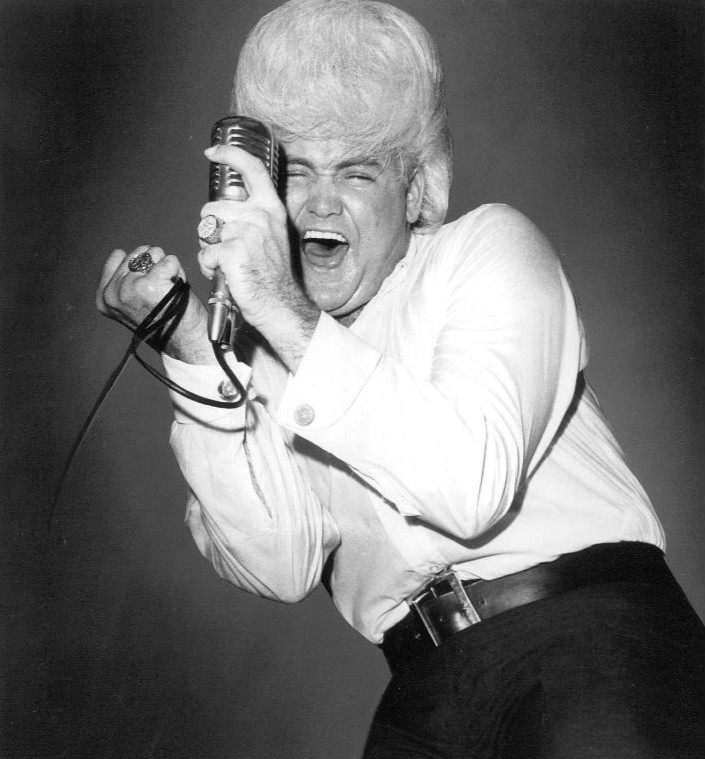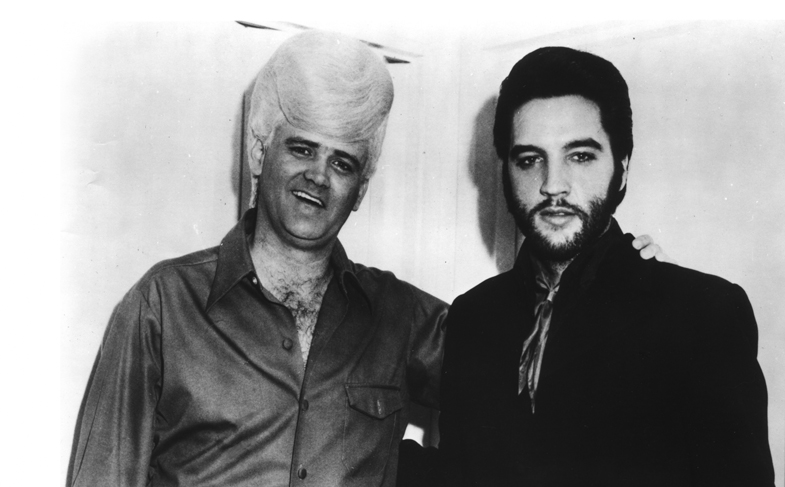
Even if you’ve never heard his music—a good possibility since he never had a national hit single or album—if you were around in the ’60s chances are good you’ll remember his picture. At his peak, in the 1960s, the soul-rock singer Wayne Cochran sported what must have been the world’s largest pompadour, a yellowish-platinum-blondish coif that seemed to defy gravity and kept the hairspray companies in business for years. His stage outfits, too, were something to behold.
But lack of commercial success aside, Cochran, who died in Miami on Nov. 21 at age 78, of cancer, was a formidable entertainer beloved by many during his performing years—and then again when he gave it all up to become a preacher. In the 1960s and early ’70s, along with his band the C.C. Riders, Cochran was a dynamic, highly touted performer who managed to attract plaudits from his peers in the industry and gather a devoted fan base in the South.
He was born in Thomaston, Ga., in 1939 (the precise date is unknown) and formed his first band, the Nite Flyers, in Macon, Ga., in 1955. His own recordings, cut for small labels, didn’t sell outside of the region but one song he wrote, the teen-tragedy saga “Last Kiss,” became a #2 hit for J. Frank Wilson and the Cavaliers in 1964. The following year, Cochran’s version of “Harlem Shuffle,” released on Mercury Records, peaked at #127, his only placement on the Billboard pop singles chart. Although R&B music was his chosen genre, he never made that chart at all, and the only album that ever made a dent was the self-titled Wayne Cochran! on Chess in 1968, peaking at #167.
Related: Who are some of the other great blue-eyed soul singers?
Watch Wayne Cochran and the C.C. Riders live
Nonetheless, Cochran seemed able to garner a respectable amount of attention due to his outlandish appearance—he said he based the hairstyle on James Brown, although the performances were more Little Richard—and he proudly wore his nickname the White Night of Soul. No less than Otis Redding and Elvis Presley (who allegedly borrowed Cochran’s arrangement of the old blues song “C.C. Rider”—which provided Cochran with his band’s name—as his own) were impressed by Cochran’s act. Jackie Gleason was another fan, booking Wayne Cochran and the C.C. Riders onto his TV variety program.

But by the early ’70s the rock lifestyle had begun to catch up with him. Cochran left rock ’n’ roll and soul behind and turned his newfound Christian faith into a new vocation, becoming a preacher at the Voice for Jesus Church near Miami Gardens, Fla.
Even as a preacher, Cochran opted for the outrageous, once boasting that his church, unlike others, was “loud” and “it burns” and was filled with raucous music.
Cochran also took credit for discovering the legendary jazz bassist Jaco Pastorius.
His influence on fellow artists outlived Cochran’s own rocking days. The Blues Brothers paid him tribute with their cover of ‘Goin’ Back to Miami,” a song Cochran had popularized. But the one-time singer never returned to his rockin’ soul roots, preferring the message and lifestyle offered by the church.
[easy_sign_up title=”Sign up for the Best Classic Bands Newsletter”]
Watch Wayne Cochran sing “Goin’ Back to Miami”


1 Comment
Wayne was a wonder to watch live he played in my hometown of West Palm Beach many times I would always catch his shows when in Miami. The CC Riders and back up gals were great kicking out the soul-grinding music of the 1960’s. Sending you a prayer Wayne my old friend